IBD
How to submit an article:
- Registered users can submit any published journal article that has a unique DOI (Digital Object Identifier) name or link to Research Hub.
- For example, you can paste the full DOI link:
https://doi.org/10.1109/5.771073or just the DOI name:10.1109/5.771073into the field above and click submit. - The person who is first to submit a valid article to Research Hub will forever be credited for it, and every article submission earns you +6 Research Points.
Related Topics
Published research studies are articles that present the findings of original research that has undergone a peer-review process and has been made publicly available in scholarly journals, books or other media.

Assessment of anti-inflammatory efficacy of acupuncture in patients with inflammatory bowel disease: A systematic review and meta-analysis
2023 Jun Complementary Therapies in Medicine Yang X, He M, Tang Q, Wang Z, Jin D, Wu X, et al.
Meta-Analysis Systematic Review Acupuncture Crohn's DiseaseAcupuncture demonstrates a positive therapeutic effect on inflammatory bowel disease (IBD) by effectively regulating associated inflammatory factors.
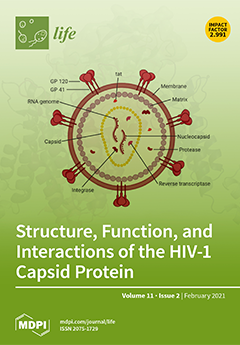
The Role of Seaweed Polysaccharides in Gastrointestinal Health: Protective Effect against Inflammatory Bowel Disease
2023 Apr 16 Life Liyanage NM, Nagahawatta DP, Jayawardena TU, Jeon YJ
Systematic Review Digestive Health Inflammatory Bowel Disease SeaweedSeaweed polysaccharides, especially those found in the cell walls of marine algae, hold significant potential as a natural, complementary treatment for Inflammatory Bowel Disease (IBD).

Biomarkers of Metabolomics in Inflammatory Bowel Disease and Damp-Heat Syndrome: A Preliminary Study
2022 Jul 01 Evidence-Based Complementary and Alternative Medicine Wu X, Liu K, Wu Q, Wang M, Chen X, Li Y, et al.
In this study, we found that several metabolites of aromatic acids and lipid derivatives could act as potential biomarkers to discriminate IBD from healthy controls. Glycerophospholipids metabolites might be used to differentiate IBD-DH from IBD-SD.
Network Pharmacology Irritable Bowel Syndrome
Holism of Chinese herbal medicine prescriptions for inflammatory bowel disease: A review based on clinical evidence and experimental research
2022 Jul Phytomedicine Zhang S, Luo H, Tan D, Peng B, Zhong Z, Wang Y
Review Article Inflammatory Bowel DiseaseChinese Herbal Medicine Prescriptions (CHMPs) have demonstrated to be potentially effective in managing Inflammatory Bowel Disease (IBD) with a comprehensive, holistic approach.
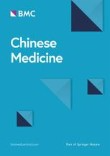
Inflammatory bowel disease: an overview of Chinese herbal medicine formula-based treatment
2022 Jun 18 Chinese Medicine Yuan S, Wang Q, Li J, Xue JC, Li Y, Meng H, et al.
Chinese Herbal Medicine Formula (CHMF) has apparent advantages. In addition to the exact composition and controlled quality of modern drugs, it also has multi-component and multi-target synergistic effects.
Review ArticleResearch insights are moderated by the Research Hub team and offer an at-a-glance overview of interesting research findings.

2023 Complementary Therapies in Medicine
Acupuncture demonstrates a positive therapeutic effect on inflammatory bowel disease (IBD) by effectively regulating associated inflammatory factors.
Meta-Analysis Acupuncture Crohn's Disease
Assessment of anti-inflammatory efficacy of acupuncture in patients with inflammatory bowel disease: A systematic review and meta-analysis
Yang X, He M, Tang Q, Wang Z, Jin D, Wu X, et al.

2023 Life
Seaweed polysaccharides, especially those found in the cell walls of marine algae, hold significant potential as a natural, complementary treatment for Inflammatory Bowel Disease (IBD).
Systematic Review Digestive Health Inflammatory Bowel Disease Seaweed
The Role of Seaweed Polysaccharides in Gastrointestinal Health: Protective Effect against Inflammatory Bowel Disease
Liyanage NM, Nagahawatta DP, Jayawardena TU, Jeon YJ

2022 Phytomedicine
Chinese Herbal Medicine Prescriptions (CHMPs) have demonstrated to be potentially effective in managing Inflammatory Bowel Disease (IBD) with a comprehensive, holistic approach.
Review Article Inflammatory Bowel Disease
Holism of Chinese herbal medicine prescriptions for inflammatory bowel disease: A review based on clinical evidence and experimental research
Zhang S, Luo H, Tan D, Peng B, Zhong Z, Wang Y
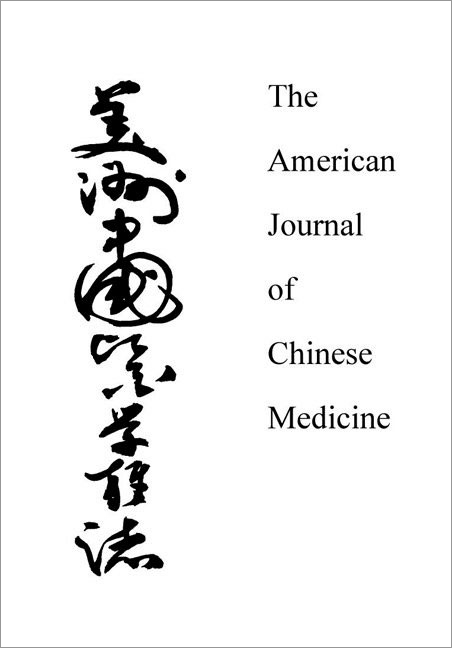
2022 The American Journal of Chinese Medicine
Acupuncture shows promising results in managing autoimmune diseases by potentially regulating immune responses.
Review Article Inflammatory Bowel Disease Multiple Sclerosis Rheumatoid Arthritis
Therapeutic Effect and Mechanism of Acupuncture in Autoimmune Diseases
Jing Wang, Fangyi Zhu, Wei Huang, Zhengyi Chen, Ping Zhao, Yanting Lei, et al.

2022 Evidence-Based Complementary and Alternative Medicine
Acupuncture can regulate both innate and adaptive immunity of IBD patients, including the balance of Th17/Treg and Th1/Th2 cells, and also modulate intestinal flora.
Review Article Acupuncture Inflammatory Bowel Disease
A Review on the Immunomodulatory Mechanism of Acupuncture in the Treatment of Inflammatory Bowel Disease
Liu Z, Jiao Y, Yu T, Wang H, Zhang Y, Liu D, et al.
Review Articles
Review articles summarise and critically evaluate the current state of research on a specific topic or field by synthesising multiple primary research studies.

Assessment of anti-inflammatory efficacy of acupuncture in patients with inflammatory bowel disease: A systematic review and meta-analysis
2023 Jun Complementary Therapies in Medicine Yang X, He M, Tang Q, Wang Z, Jin D, Wu X, et al.
Meta-Analysis Systematic Review Acupuncture Crohn's DiseaseAcupuncture demonstrates a positive therapeutic effect on inflammatory bowel disease (IBD) by effectively regulating associated inflammatory factors.

The Role of Seaweed Polysaccharides in Gastrointestinal Health: Protective Effect against Inflammatory Bowel Disease
2023 Apr 16 Life Liyanage NM, Nagahawatta DP, Jayawardena TU, Jeon YJ
Systematic Review Digestive Health Inflammatory Bowel Disease SeaweedSeaweed polysaccharides, especially those found in the cell walls of marine algae, hold significant potential as a natural, complementary treatment for Inflammatory Bowel Disease (IBD).

Holism of Chinese herbal medicine prescriptions for inflammatory bowel disease: A review based on clinical evidence and experimental research
2022 Jul Phytomedicine Zhang S, Luo H, Tan D, Peng B, Zhong Z, Wang Y
Review Article Inflammatory Bowel DiseaseChinese Herbal Medicine Prescriptions (CHMPs) have demonstrated to be potentially effective in managing Inflammatory Bowel Disease (IBD) with a comprehensive, holistic approach.

Inflammatory bowel disease: an overview of Chinese herbal medicine formula-based treatment
2022 Jun 18 Chinese Medicine Yuan S, Wang Q, Li J, Xue JC, Li Y, Meng H, et al.
Chinese Herbal Medicine Formula (CHMF) has apparent advantages. In addition to the exact composition and controlled quality of modern drugs, it also has multi-component and multi-target synergistic effects.
Review Article
Therapeutic Effect and Mechanism of Acupuncture in Autoimmune Diseases
2022 Mar 10 The American Journal of Chinese Medicine Jing Wang, Fangyi Zhu, Wei Huang, Zhengyi Chen, Ping Zhao, Yanting Lei, et al.
Review Article Rheumatoid Arthritis Inflammatory Bowel Disease Multiple SclerosisAcupuncture shows promising results in managing autoimmune diseases by potentially regulating immune responses.
Clinical Trials
Clinical trials are research studies that involve people and are conducted to evaluate the safety and efficacy of new treatments or interventions, such as drugs, medical devices, or behavioural therapies.
Study Protocols
Published study protocols are detailed plans that outline the objectives, methodology, statistical analyses, and organisation of a research study that have been made publicly available for others to review and use as a reference.
Presentation Slides

Meta-Analysis
Acupuncture demonstrates a positive therapeutic effect on inflammatory bowel disease (IBD) by effectively regulating associated inflammatory factors.
Yang X, He M, Tang Q, Wang Z, Jin D, Wu X, Yang Y, Ma D, Sun M, Li T

Systematic Review
Seaweed polysaccharides, especially those found in the cell walls of marine algae, hold significant potential as a natural, complementary treatment for Inflammatory Bowel Disease (IBD).
Liyanage NM, Nagahawatta DP, Jayawardena TU, Jeon YJ

Review Article
Chinese Herbal Medicine Prescriptions (CHMPs) have demonstrated to be potentially effective in managing Inflammatory Bowel Disease (IBD) with a comprehensive, holistic approach.
Zhang S, Luo H, Tan D, Peng B, Zhong Z, Wang Y

Review Article
Acupuncture shows promising results in managing autoimmune diseases by potentially regulating immune responses.
Jing Wang, Fangyi Zhu, Wei Huang, Zhengyi Chen, Ping Zhao, Yanting Lei, Yumei Liu, Xijun Liu, Bo Sun, Hulun Li

Review Article
Acupuncture can regulate both innate and adaptive immunity of IBD patients, including the balance of Th17/Treg and Th1/Th2 cells, and also modulate intestinal flora.
Liu Z, Jiao Y, Yu T, Wang H, Zhang Y, Liu D, Xu Y, Guan Q, Lu M

Review Article
Goji berries, notably their polysaccharides, exhibit protective effects against inflammatory bowel disease through the preservation of healthy gut microbiota.
Sun Q, Du M, Kang Y, Zhu MJ

Systematic Review
Chinese medicine's unique immune regulation, intestinal flora regulation, and improved intestinal barrier function offer new approaches to managing chronic Inflammatory Bowel Disease.
Yang L, Luo H, Tan D, Zhang S, Zhong Z, Wang S, Vong CT, Wang Y

Systematic Review
Chinese medicine presents unique advantages in managing Inflammatory Bowel Disease (IBD) through immune regulation, intestinal flora regulation, and improvement of intestinal barrier function.
Yang L, Luo H, Tan D, Zhang S, Zhong Z, Wang S, Vong CT, Wang Y
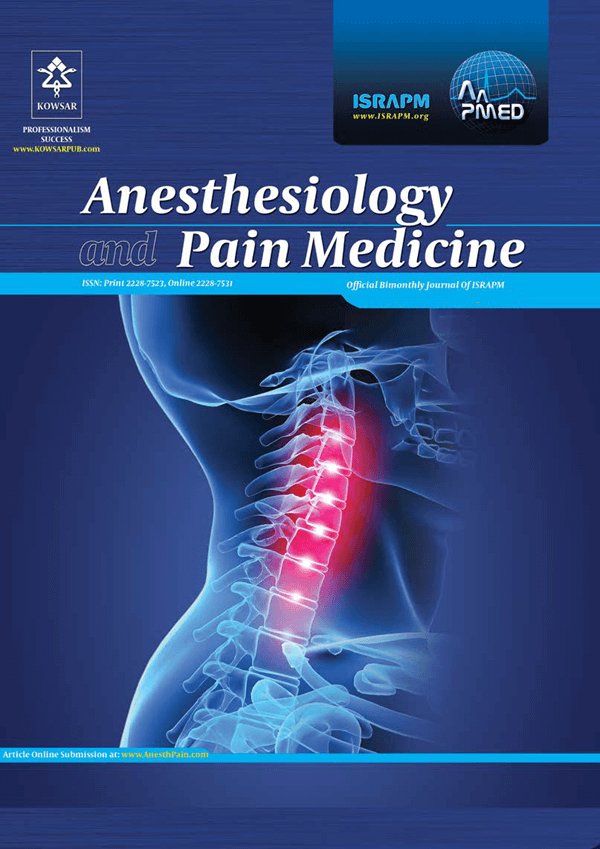
Review Article
Acupuncture is shown to be a beneficial supplementary treatment for chronic abdominal pain, improving patients' quality of life and cutting healthcare costs.
Berger AA, Liu Y, Jin K, Kaneb A, Welschmeyer A, Cornett EM, Kaye AD, Imani F, Khademi SH, Varrassi G, Viswanath O, Urits I

Review Article
Acupuncture has shown promise as a complementary approach in treating chronic abdominal pain, providing symptom relief and improving quality of life.
Berger AA, Liu Y, Jin K, Kaneb A, Welschmeyer A, Cornett EM, Kaye AD, Imani F, Khademi SH, Varrassi G, Viswanath O, Urits I
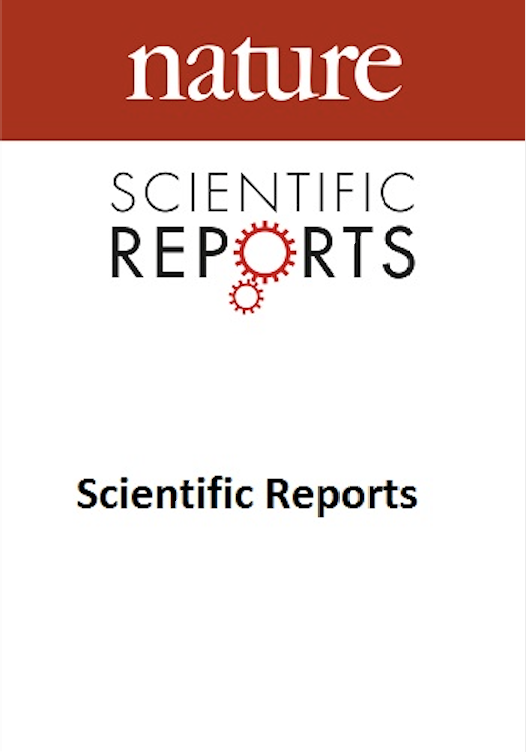
Experimental Study
Mu Dan Pi (MDP) and its water extract may serve as potential treatment options for inflammatory bowel disease.
Chen TF, Hsu JT, Wu KC, Hsiao CF, Lin JA, Cheng YH, Liu YH, Lee DY, Chang HH, Cho DY, Hsu JL

Review Article
Seaweed extracts and polysaccharides are effective candidates for developing drugs and functional nutrition products to treat inflammatory bowel disease.
Besednova NN, Zaporozhets TS, Kuznetsova TA, Makarenkova ID, Kryzhanovsky SP, Fedyanina LN, Ermakova SP
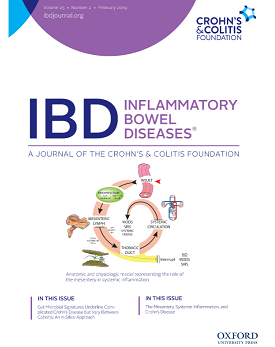
Practice Guideline
Acupuncture has been shown to decrease disease activity and inflammation via increase of vagal activity in inflammatory bowel disease.
Gengqing Song, MD, Claudio Fiocchi, MD, Jean-Paul Achkar, MD
Executive Summary
Write an executive summary in the form of a blog article on the topic of "Research into Chinese medicine treatment for IBD" summarising the research below and using language that can be easily understood by patients and avoiding medical jargon using a professional and caring tone of voice.
Write an executive summary in the form of a blog article on the topic of "Researched Chinese medicine treatments for IBD" summarising the research below in an objective and easy to understand way, and using language that can be easily understood by patients. Group the article into Chinese medicine treatments first, followed by nutrition and other treatments. Avoid using medical jargon and use a professional and caring tone of voice.
Write me a concise but easy to understand executive summary on the topic of "Chinese medicine treatments for IBD" based on the following research that I will give you. Your summary should be 2 paragraphs long in Australian English spelling and include references to the studies.
A Meta-Analysis published in 2023 in the journal Complementary Therapies in Medicine found that Acupuncture demonstrates a positive therapeutic effect on inflammatory bowel disease (IBD) by effectively regulating associated inflammatory factors. Eight electronic databases were utilized in a systematic search for studies that satisfied the pre-defined inclusion parameters. Two impartial reviewers evaluated the quality of the resultant studies and a meta-analysis was then performed to assess the efficacy of acupuncture on IBD and its related inflammatory factors which include TNF-α, IL-1, IL-8, and IL-10. The analysis comprised of four randomized controlled trials that involved a total of 228 patients. The beneficial effects of acupuncture on IBD patients were thoroughly inspected, as well as its ability to regulate levels of specified inflammatory factors. The P values, which refer to the probability that any observed result occurred by chance, were critically assessed for every inflammatory factor - significance was found in the values of TNF-α, IL-8, and IL-10, but not for IL-1. The conclusion drawn was that acupuncture has a positive therapeutic impact on individuals suffering from IBD, and quite importantly, can regulate inflammatory factors in these patients. As a result of these findings, it is suggested that TNF-α, IL-8, and IL-10 are the ideal inflammatory indicators for evaluating the anti-inflammatory response in this patient category.
A Systematic Review published in 2023 in the journal Life found that Seaweed polysaccharides, especially those found in the cell walls of marine algae, hold significant potential as a natural, complementary treatment for Inflammatory Bowel Disease (IBD). The study analysed the therapeutic properties of sulfated polysaccharides, including carrageenan in red algae, ulvan in green algae, and fucoidan in brown algae, which are abundantly present in the cell walls of marine algae. Addressing key IBD pathologic treatment targets, the research explored polysaccharides' effects on inflammatory cytokines, adhesion molecules, intestinal epithelial cells, and intestinal microflora. These therapeutic targets were analyzed with an emphasis on utilizing natural substances like seaweed polysaccharides for improving IBD treatment efficacy. Building upon the theory of a nutritional preventive mechanism for IBD and the restoration of intestinal health, the findings underscore the potent therapeutic capabilities of these natural compounds. Algal polysaccharides were found to have immense potential as a complementary treatment for IBD. It was suggested that these natural substances can be developed into effective drugs and functionally nutritious products, emphasizing a natural approach towards managing this global public health issue.
A Review Article published in 2022 in the journal Phytomedicine found that Chinese Herbal Medicine Prescriptions (CHMPs) have demonstrated to be potentially effective in managing Inflammatory Bowel Disease (IBD) with a comprehensive, holistic approach. In their methodology, the authors reviewed both preclinical and clinical researches to evaluate the effectiveness of CHMPs in treating IBD. They performed screenings of articles that highlighted the use of CHMP as a treatment option for IBD, giving them an insight into the complexity of the disease and the sophistication of CHMP treatments. Subsequently, they conducted an umbrella review of multiple meta-analyses linked to CHMPs to comprehend the efficacy of these herbal prescriptions in a clinical setting; they narrowed down from 1174 records to 12 substantial references for the review. In discussing their results, the authors analyzed a variety of 14 CHMPs that have a historical usage background and discussed their respective mechanisms of action. They delve into the inherent characteristics of the herbs used to provide a comprehensive understanding of the CHMPs. Recognizing the holistic nature being integral to CHMP, the authors discussed how the implementation of omics, studying the gut microbiome, and network pharmacology can enhance the understanding of CHMPs' bioactions in treating IBD.
A Review Article published in 2022 in the journal The American Journal of Chinese Medicine found that Acupuncture shows promising results in managing autoimmune diseases by potentially regulating immune responses. The methodology of the study involved a comprehensive review of how acupuncture, a form of traditional Chinese medicine, may be employed as a treatment method for autoimmune diseases such as multiple sclerosis, rheumatoid arthritis, and inflammatory bowel disease. The research was based on existing knowledge and accumulating data, investigating the role of acupuncture in regulating immune responses during these conditions. The discussion of the results revealed that acupuncture showed promise in managing these diseases. It was noted that the positive outcomes observed might be linked to the potential of acupuncture to regulate abnormal immune responses which are characteristic of autoimmune diseases. Despite the fact that the precise mechanism through which this achieved is not fully understood, the findings indicate a promising alternative method of managing autoimmune conditions.
A Review Article published in 2022 in the journal Evidence-Based Complementary and Alternative Medicine found that Acupuncture can regulate both innate and adaptive immunity of IBD patients, including the balance of Th17/Treg and Th1/Th2 cells, and also modulate intestinal flora. The methodology of the research revolved around a review of existing studies related to the treatment of Inflammatory Bowel Disease (IBD) via acupuncture. The broad scope of exploration focused on the effects of acupuncture on the immunomodulatory mechanism inherent in these patients. The review pursued a detailed study of how acupuncture directly influenced both the innate and adaptive immunity systems in IBD patients as well as its regulation on their intestinal flora. The results discussion revealed that acupuncture had multiple immunomodulatory effects on IBD patients. On one hand, it influenced their innate immunity by regulating elements such as their intestinal epithelial barriers, toll-like receptors, NLRP3 inflammasomes, oxidative stress, and endoplasmic reticulum stress. On the other hand, it affected their adaptive immunity by modulating the balance of Th17/Treg and Th1/Th2 cells. Furthermore, an interesting revelation from the study was that acupuncture could also significantly regulate the intestinal flora of the patients.
A Review Article published in 2022 in the journal Critical Reviews in Food Science and Nutrition found that Goji berries, notably their polysaccharides, exhibit protective effects against inflammatory bowel disease through the preservation of healthy gut microbiota. The review encompassed an in-depth analysis of current literature specially focusing on the role of goji berry and its important functional constituents in countering Inflammatory Bowel Disease (IBD). The core attentiveness of the research is directed towards understanding the interplay between goji berries, particularly their polysaccharides, and gut microbiota. The goji berries’ protective effects were evaluated, focusing on how they curb disruption in gut microbiota, a common facet in IBD. The review concluded that goji berries, especially their polysaccharides, demonstrated appreciable benefits in averting gut microbiota disturbances seen with IBD, thus protecting against this condition. These natural substances, present in goji berries, function as prebiotics, which maintain a balanced gut microbial ecosystem. The research further revealed that proper functioning of gut microbiota and their metabolites was a crucial element in mediating these beneficial effects against IBD, thus cementing the role of dietary interventions in managing diseases linked with gut health.
A Systematic Review published in 2021 in the journal Phytomedicine found that Chinese medicine's unique immune regulation, intestinal flora regulation, and improved intestinal barrier function offer new approaches to managing chronic Inflammatory Bowel Disease. The study involved a comprehensive review of literature from peer-reviewed and clinical databases such as PubMed, Web of Science, ClinicalTrials.gov, MEDLINE, EMBASE, Springer LINK, Wan-fang database, the Chinese Biomedicine Database, and the China National Knowledge Infrastructure. Keywords such as inflammatory bowel disease (including Ulcerative colitis or Crohn's disease) and Chinese medicine were used, focusing on studies conducted between 1997 and 2021, while excluding those that did not meet specific criteria. The review primarily focused on the pathogenesis of IBD and how Chinese medicine plays a role in its treatment, particularly in immune regulation, intestinal flora regulation, and improvement of intestinal barrier function. The collective findings present exciting progress in understanding how multi-herbal Chinese medicine can potentially contribute to the treatment of IBD.
A Systematic Review published in 2021 in the journal Phytomedicine found that Chinese medicine presents unique advantages in managing Inflammatory Bowel Disease (IBD) through immune regulation, intestinal flora regulation, and improvement of intestinal barrier function. In their research, the researchers conducted a systematic review of studies that assessed the effects and mechanics of Chinese medicine in treating IBD. They performed a literature search on various peer-reviewed and clinical databases, including reputable international and Chinese sources. The keywords used for this comprehensive search included "inflammatory bowel disease", "Ulcerative colitis", "Crohn's disease", and "Chinese medicine". Only articles from the period of 1997-2021 that met their exclusion criteria were chosen for the review. The compiled research illuminates recent progression in using Chinese medicine to treat IBD. Certain studies specifically look at how Chinese medicine impacts immune regulation, intestinal flora regulation, and the enhancement of intestinal barrier function in IBD patients. This information could serve as a key reference for further exploration regarding the potential of classical multi-herbal Chinese medicine in treating IBD.
A Review Article published in 2021 in the journal Anesthesiology and Pain Medicine found that Acupuncture is shown to be a beneficial supplementary treatment for chronic abdominal pain, improving patients' quality of life and cutting healthcare costs. The research explores the utilization of acupuncture to treat chronic abdominal pain, a condition widespread and chiefly affected by Irritable Bowel Syndrome (IBS) and Inflammatory Bowel Disease (IBD). This type of pain is defined by three episodes of severe abdominal pain over a span of three months. While its causes are still being looked into, it is believed to be an outcome of the chronicity of acute pain or chronic pain syndromes. A wide array of treatments for these conditions exist but often fall short of fully controlling the symptoms. Acupuncture, a form of traditional Chinese medicine based on the concept of rebalancing the patient's Qi, or Ying/Yang balance, is being investigated as a complementary method. In terms of results, acupuncture has proven effective in providing additional alleviation of symptoms, leading to improved quality of life and reduced disability for patients affected by chronic abdominal pain. While it's not a curative solution, it aids in minimizing symptoms and enhancing overall life quality. It is also considered a safe and inexpensive alternative that may result in significant healthcare savings. Notably, it's not recommended for all patients; its benefits seem to be more pronounced in a select group.
A Review Article published in 2021 in the journal Anesthesiology and Pain Medicine found that Acupuncture has shown promise as a complementary approach in treating chronic abdominal pain, providing symptom relief and improving quality of life. The methodology revolves around applying acupuncture, a form of integrative medicine from traditional Chinese medicine, to patients suffering from chronic abdominal pain. This pain is defined as having three severe abdominal pain instances over three months, often caused by chronic acute pain or chronic pain syndromes, primarily IBS and IBD. Despite existing treatments, these often fail to control the symptoms completely, leaving room for complementary methods like acupuncture. This practice is based on rebalancing a patient's Qi, or Ying/Yang balance, previously shown effective in treating various conditions. The results reveal that acupuncture can serve as a crucial adjunct in managing chronic abdominal pain. It is not a cure, but it significantly aids in symptom reduction and quality of life improvement. Particularly for those affected by IBS and IBD, acupuncture offers extra relief from lingering symptoms, thereby improving quality of life, decreasing disability, and potentially contributing to healthcare cost savings. Acupuncture has emerged as a safe, inexpensive, and beneficial approach for selected patients suffering from chronic abdominal pain.
A Experimental Study published in 2020 in the journal Scientific Reports found that Mu Dan Pi (MDP) and its water extract may serve as potential treatment options for inflammatory bowel disease. In the study, the anti-inflammatory impacts of Mu Dan Pi and its primary active compounds on inflammatory bowel disease were assessed systematically. Screening was done via NF-κB and interferon regulatory factor reporter assays in THP-1 cells, stimulated with particular gene activators. This process was later verified in bone marrow-derived macrophages. The water extract of Mu Dan Pi considerably hindered the activation of NF-κB and IRF reporters, modifying downstream signaling pathways and decreasing the production of IL-6 and TNF-α, based on dosage. In subsequent observations, among the five known active components identified within Mu Dan Pi, one component known as PGG distinguished itself as the most effective at inhibiting reporters and reducing IL-6 and TNF-α. On a clinical application level, both MDP powder and its water extract mitigated colitis and pathological changes in mice, although PGG did not present any significant reduction. This suggests that the anti-inflammatory qualities of Mu Dan Pi may hold therapeutic potential for inflammatory bowel disease.
A Review Article published in 2020 in the journal Marine Drugs found that Seaweed extracts and polysaccharides are effective candidates for developing drugs and functional nutrition products to treat inflammatory bowel disease. The methodology summarized in this research paper encompasses examining natural compounds, specifically derived from seaweed, which could potentially serve as therapeutic agents for IBD. Concentrating on the unique structural features of algal polysaccharides, the researchers observed their interaction with several factors associated with IBD, such as proinflammatory cytokines, chemokines, adhesion molecules, intestinal epithelial cells, and reactive oxygen and nitrogen. In discussing the results, it was seen that the seaweed extracts and polysaccharides show promise in influencing key therapeutic targets related to IBD, suggesting their potential utility in the development of treatment options for patients. These include drugs, biological food additives, and functional nutrition products. This conclusion was drawn by noting the influence of these extracts and polysaccharides on immune and epithelial cells as well as intestinal microorganisms.
A Practice Guideline published in 2018 in the journal Inflammatory Bowel Diseases found that Acupuncture has been shown to decrease disease activity and inflammation via increase of vagal activity in inflammatory bowel disease. In this review, we discuss the history, theory, and methodology of acupuncture and review potentially beneficial mechanisms of action of acupuncture for managing inflammatory bowel disease. Acupuncture has been shown to decrease disease activity and inflammation via increase of vagal activity in inflammatory bowel disease. Acupuncture has demonstrated beneficial roles in the regulation of gut dysbiosis, intestinal barrier function, visceral hypersensitivity, gut motor dysfunction, depression/anxiety, and pain, all of which are factors that can significantly impact quality of life in patients with inflammatory bowel disease.
Moderation Tools
Topic
Sign In
Users not signed in are limited to viewing the 5 most recent items of content.

No access to full-text —Rachael L 7 Apr 2022